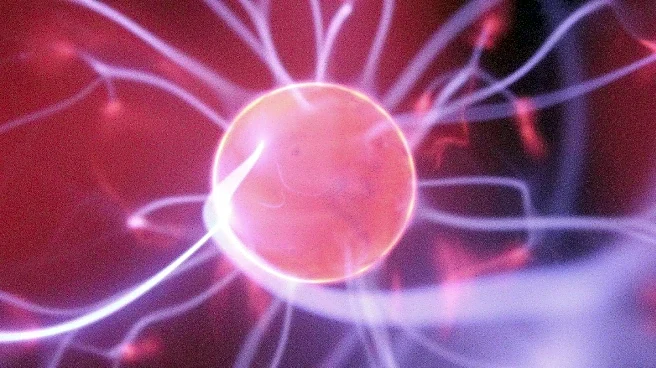What is the story about?
What's Happening?
Researchers at Trinity College Dublin have discovered that electrical stimulation can 'reprogram' human macrophages to reduce inflammation and enhance healing. In vitro studies demonstrated that electrically stimulated macrophages adopt an anti-inflammatory, pro-regenerative phenotype, which decreases inflammatory markers and increases angiogenic gene expression. This breakthrough suggests a new therapeutic approach for improving tissue repair in various injury and disease contexts. The study, published in Cell Reports Physical Science, highlights the potential of electrical stimulation to modulate immune responses and support tissue regeneration.
Why It's Important?
The ability to reprogram macrophages through electrical stimulation offers a promising avenue for treating inflammatory diseases and enhancing tissue repair. This approach could lead to more effective therapies for conditions characterized by chronic inflammation and impaired healing, such as arthritis and cardiovascular diseases. By harnessing the body's natural repair mechanisms, electrical stimulation may provide a safer and more efficient alternative to traditional treatments. The findings underscore the importance of exploring innovative strategies to modulate immune function and improve patient outcomes.
What's Next?
Future research will focus on optimizing electrical stimulation protocols and exploring its effects in vivo. Researchers aim to identify the underlying mechanisms of macrophage modulation and develop targeted therapies for clinical use. The potential for electrical stimulation to be integrated into existing treatment regimens will be evaluated, and collaborations with industry partners may facilitate the translation of these findings into practical applications. Continued investigation into the role of macrophages in tissue repair will drive advancements in regenerative medicine.
















